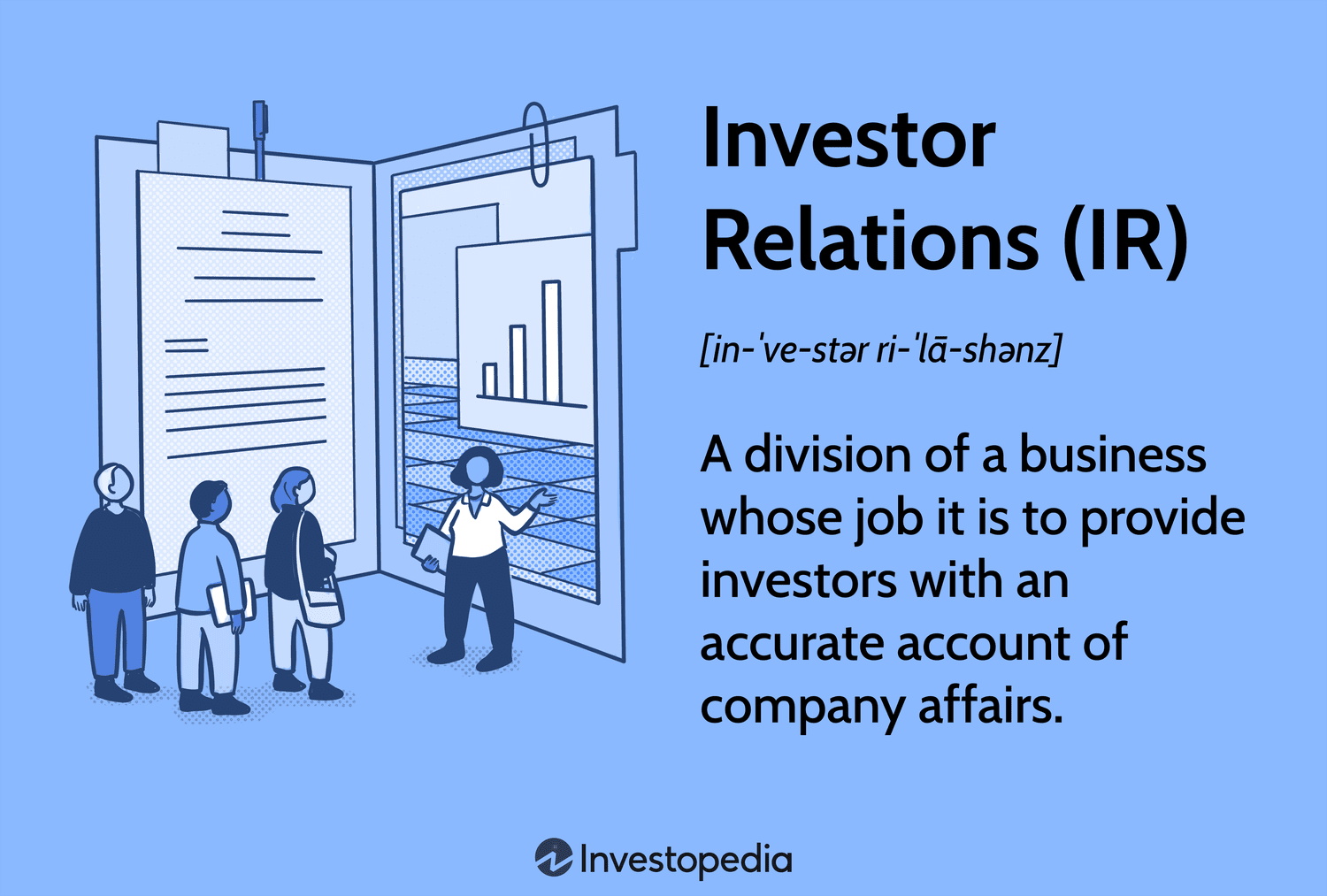
Investor Relations FAQ: Answering Your Key Questions
Investor relations (IR) is a vital aspect of any publicly traded company’s operations. It involves managing communication between the company and its shareholders, analysts, and potential investors. In the complex world of finance and investment, it’s natural to have questions about investor relations. In this FAQ, I address some of the most common queries to help you better understand this critical field.
Q1: What Is Investor Relations, and Why Is It Important?
A1: Investor relations is a strategic management responsibility that focuses on fostering effective communication between a company and its stakeholders, particularly shareholders and potential investors. It is essential because it helps build trust, transparency, and credibility, which can influence investment decisions and stock performance.
Q2: What Does an Investor Relations Officer (IRO) Do?
A2: An Investor Relations Officer (IRO) is responsible for managing relationships with shareholders, communicating the company’s financial performance, strategies, and outlook to the investment community, and ensuring compliance with financial reporting regulations. They also act as a bridge between the company’s management and external stakeholders. They are”not” licensed brokers in charge of seeking out investors for you. However, if their messaging is clear and enticing — investors will come to you.
Q3: How Can a Company Benefit from Effective Investor Relations?
A3: Effective investor relations can benefit a company in various ways, including:
· Attracting and retaining investors
· Enhancing the company’s reputation and credibility
· Reducing the cost of capital
· Increasing stock liquidity
· Accessing a broader investor base
Q4: What Are the Key Components of an Investor Relations Program?
A4: A comprehensive investor relations program includes:
· Regular financial reporting and disclosures
· Investor communications, including earnings calls and presentations
· Shareholder engagement and feedback
· Competitive analysis and benchmarking
· Crisis management and issue resolution
Q5: How Does a Company Communicate with Investors and Analysts?
A5: Companies communicate with investors and analysts through various channels, such as:
· Earnings calls and webcasts
· Investor presentations
· Annual reports and proxy statements
· Press releases
· One-on-one meetings and conferences
Q6: What Is the Role of Social Media in Investor Relations?
A6: Social media has become an increasingly important tool for investor relations. Companies use platforms like Twitter, LinkedIn, and even dedicated investor relations websites to share news, updates, and engage with shareholders and analysts.
Q7: How Can a Company Navigate a Crisis or Negative News in Investor Relations?
A7: During a crisis or when facing negative news, transparency is crucial. Companies should promptly communicate the situation, its impact, and the steps taken to address it. A well-prepared crisis communication plan is essential to manage such situations effectively.
Q8: What Are the Reporting and Compliance Requirements in Investor Relations?
A8: Reporting and compliance requirements vary by jurisdiction and stock exchange listing. Common requirements include regular financial filings (e.g., quarterly and annual reports), adherence to Generally Accepted Accounting Principles (GAAP), and compliance with regulations like the Sarbanes-Oxley Act (SOX).
Q9: How Does Investor Relations Impact a Company’s Stock Price?
A9: Effective investor relations can positively influence a company’s stock price by increasing investor confidence, reducing information asymmetry, and attracting long-term investors. It can also mitigate stock price volatility during market fluctuations.
Q10: How Can Companies Measure the Success of their Investor Relations Efforts?
A10: Key performance indicators (KPIs) for measuring the success of investor relations efforts include:
· Share price performance
· Analyst coverage and recommendations
· Shareholder engagement and feedback
· Capital market perception and rankings
Remember that investor relations is an ongoing process, and success is often measured in the long-term relationships it fosters and the trust it builds within the investment community.
Investor relations plays a pivotal role in shaping how a company is perceived by the financial markets and stakeholders. By answering these common questions, I hope to provide you with a better understanding of the importance and intricacies of investor relations in today’s business landscape.
For more insights into investor relations and corporate finance, stay tuned to my blog.
#investorrelations, #ir, #investment, #investing, #finance, #stocks, #stockmarket, #publiccompany, #communication, #shareholders, #stakeholders, #disclosure, #financialmarkets, #reporting, #quarterlyearnings, #earningscalls, #annualreports, #analysts, #socialmedia, #twitter, #crisiscommunications, #reputationmanagement, #transparency, #stockperformance, #stockprice, #compliance, #secfilings, #gasb, #financialreporting, #funding, #leadership, #financialnews, #markets, #wallstreet

sk about how my 35+ years of award winning service can help YOU and YOUR business succeed.
To learn more:
http://www.pristineadvisers.com/
youtube — https://www.youtube.com/user/PristineAdvisers/videos
Vimeo — https://vimeo.com/search?q=PRISTINE%20ADVISERS
LinkedIn — https://www.linkedin.com/company/1674911/admin/
https://www.linkedin.com/in/patriciabaronowski/
Facebook — https://www.facebook.com/PristineAdvisers?sk=wal
Twitter — https://twitter.com/pristineadvise1
Instagram — https://www.instagram.com/pristine_advisers/
Blogs — https://medium.com/@patriciabaronowski
Book time on my calendar https://calendly.com/pbaronowski/30min
